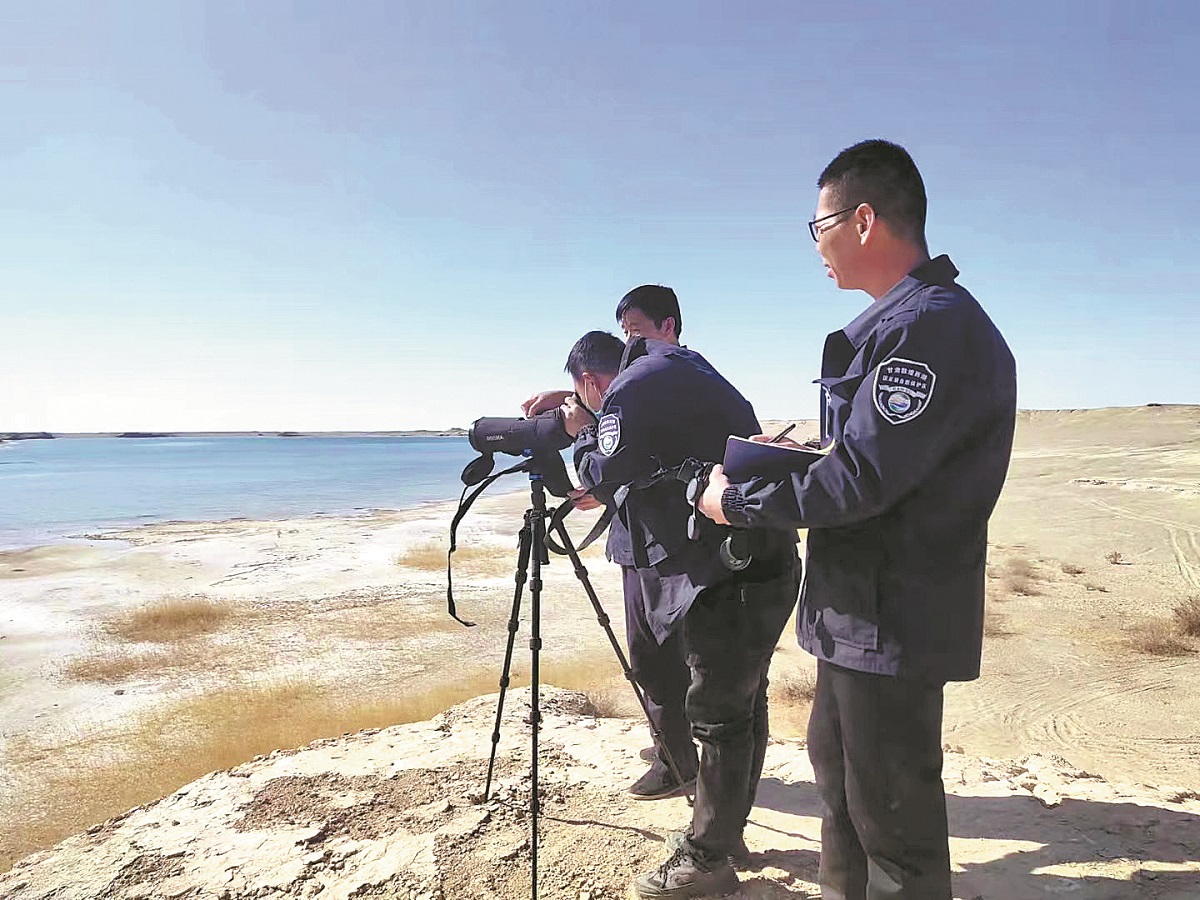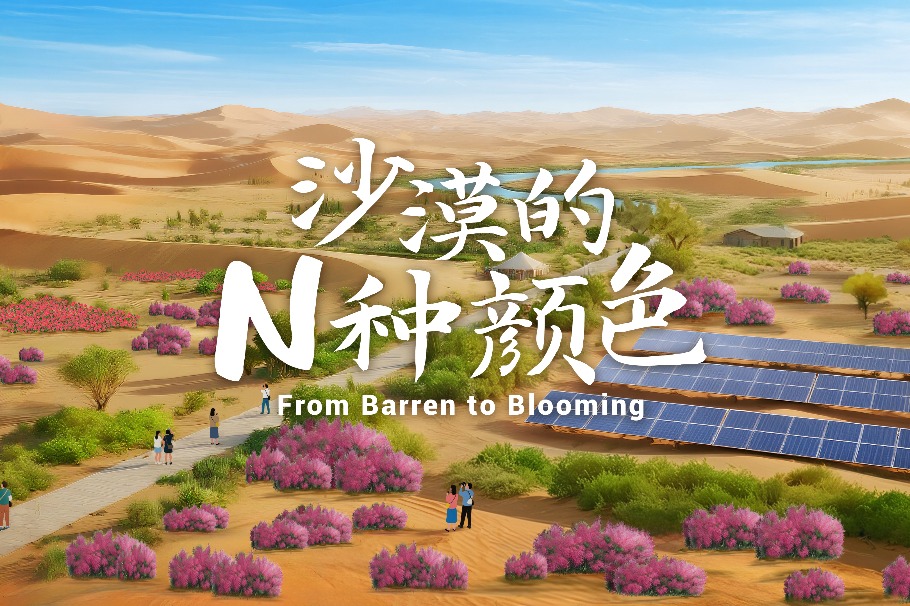Band of brothers battles solitude, wind, searing sun to transform desert
Dedicated rangers in Gansu nature reserve work hard to revive life, ecology


One of the main responsibilities he and his four colleagues share is to monitor anyone attempting to enter the area, whether travelers venturing off the beaten path, poachers, or illegal loggers targeting Euphrates, or desert poplars.
The trees have an extraordinary ability to survive in arid climates as well as exceptional tolerance for saline-alkaline soils found in the region. The reserve contains the largest and most concentrated Euphrates poplar forest in the region.
Lu said a close eye is also being kept on endangered wildlife, most notably wild camels and Przewalski's horses, which are under Class 1 protection.
"Wild camels can be quite aggressive," said Lu, recalling the time he leaped over a tall fence to escape one hot on his heels. "But what truly frightens us are the ticks — they cause unbearable itching, often high fevers, and are nearly impossible to avoid during our field surveys."
He winces at the memory of swarms of ticks crawling over the fur of a dead camel he once had to retrieve for taxidermy.
Between June and September, about 120 wild camels migrate to the Xihu from neighboring reserves in the Xinjiang Uygur autonomous region, said Wu Xingdong, director of another research station.
He said none of the research stations operate in isolation.
"The well-being of our reserve is both affected by and contributes to the health of other nature reserves across the broader region," Wu said.
"We've installed 32 monitoring towers and 14 automatic drinking stations across the reserve to track the 166 horses living here and ensure they have water during the dry season. In winter, we also break the ice so they can drink."
Occasionally, a ranger intervenes to rescue a colt from an adult male that is attempting to eliminate a potential threat.
The horses, named after a Russian explorer and naturalist Nikolai Przhevalsky who brought them global attention, are the last truly wild horse species and historically roamed the steppes of Central Asia.
Several zoos and breeding programs in the West preserved a small population, and reintroduction efforts began in the 1990s in a few natural parks and reserves in Mongolia and northwestern China, among them the Xihu Reserve.
























